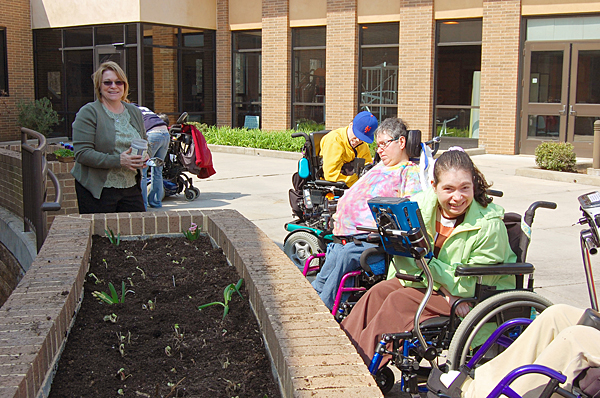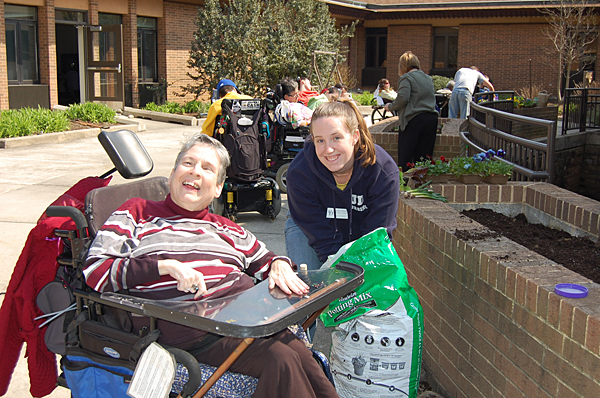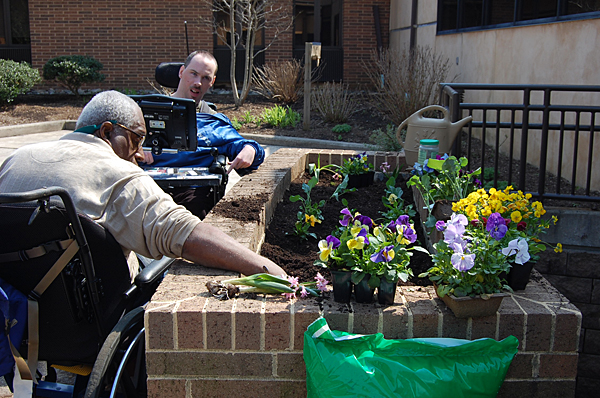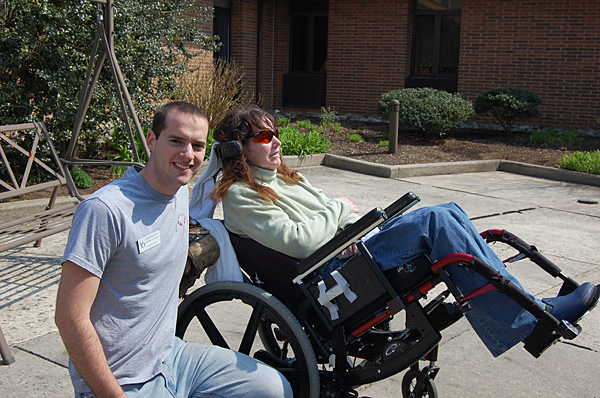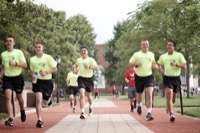Harvesting nature’s power
Nursing students plant garden at residential facility for adults with disabilities
11:18 a.m., April 22, 2011--Althea McDowell can’t plant seedlings, pull weeds or harvest strawberries, but she knows the power of plants to heal the body, the mind and the spirit. Although she is almost completely immobilized by multiple sclerosis, McDowell conceived a plan for a garden on the grounds of the Mary Campbell Center, and two University of Delaware nursing students helped bring it to life.
Seniors David Krasucki and Nina David were doing their community rotation at the Mary Campbell Center, a residential facility that is home to 67 people with a variety of disabilities, when they learned of McDowell’s wish. Four wheelchair-height brick planters sat empty in the courtyard, and the pair decided to fill them with an assortment of flowers, fruits, and vegetables for the residents to enjoy.
People Stories
'Resilience Engineering'
Reviresco June run
“We did some research and learned about the therapeutic value of horticulture,” Krasucki says. “Gardens can provide occupational therapy for people who have the ability to actually get their hands in the soil, and they can help lift depression even for those who just enjoy them by getting out in the sunshine and watching.”
The two knew that they needed help with the details, so they consulted Carrie Murphy, horticulture agent at UD Cooperative Extension, for advice about plant selection, installation, and care. They ended up planting an assortment of colorful flowers as well as lettuce, strawberries, cauliflower, and broccoli.
With assistance from Prof. Karen Avino, who teaches the community health clinical segment in UD’s School of Nursing, the students and several of the residents planted the garden in April. Those who couldn’t help physically offered suggestions on layout and color schemes.
McDowell, who can move only her eyes, supervised, and she had no problem communicating her feelings about the results afterward.
“You made me realize I probably missed my calling,” she typed in an email to the students. “I actually asked someone to list the schools with a horticulture therapy program. Maybe your results will convince the horticultural program [at UD] that they should offer a therapy program! Today may be very rewarding!”
It indeed turned out to be rewarding for Krasucki and David. “It was wonderful to see it unfold,” David says. “We never expected to do something that had this big an impact.”
These are exactly the results Avino hopes her students will achieve with community projects.
“Recognizing the dynamic connection of all aspects of a human being improves not only patients’ long-term engagement with their own health care, but also nurse job satisfaction and career fulfillment,” she says. “This project will have a significant impact on the students learning that excellence in nursing care includes integrating care of the spirit as well as the body and mind.”
Article by Diane Kukich






